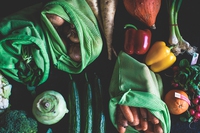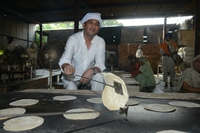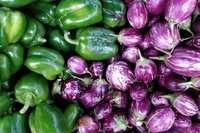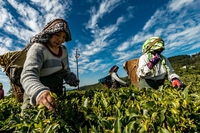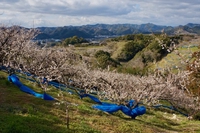
Ume, Japan’s favourite pickle, is the fruit of 400 years of sustainable farming
On the hills of Minabe and Tanabe ume fruit has been cultivated alongside oak forests and honeybees for centuries using a method now recognised by the FAO.
Sustainable and natural food has a great impact both on our well-being and that of the planet. It is a key factor in improving quality of life. Sometimes, however, it isn’t easy to find your way around the options that pass themselves off as “genuine”, “healthy” and “eco-friendly”, without actually being any of these things. If you’re interested in a natural, balanced, rich (in beneficial substances) and truly sustainable diet here you’ll find information and news related to food and food safety, all you need to know about GMOs and pesticides, organic products, the most authoritative scientific research on food properties and the monthly list of seasonal fruits, vegetables and fish. There are also lots of recipes for all tastes, as well as useful tips for cooking in a natural way, enhancing nutritional content. Quick, proper and accessible information for anyone to approach the topic of sustainable and natural nutrition and the tools needed to change our eating habits for the better.
On the hills of Minabe and Tanabe ume fruit has been cultivated alongside oak forests and honeybees for centuries using a method now recognised by the FAO.
The revival of millet farming has been tackling malnutrition and improving the livelihoods of Kutia Kondh tribespeople in Odisha state, in eastern India.
The same tycoons who created factory farms are the ones investing in fake meat. But “real” food can’t be created in laboratories: regenerative agriculture is the only way.
Through the Moments Not To Be Wasted educational project and the Talent Kitchen contest, Whirlpool teaches schoolchildren about food waste in a rewarding and inclusive way.
Food waste is a serious problem and we’re paying a dear price for it, but the European Union has many ideas on how to stop it.
Chef Vikas Khanna has been coordinating efforts to feed migrants in desperate conditions due to the coronavirus lockdown in India. A story of compassion.
Factory farming conditions and antibiotic-resistant pathogens emerging as a result of them pose an existential threat to humans in the form of zoonotic diseases. Why it’s time to produce and consume food more thoughtfully.
The world of cinema recognises the link between food choices and the climate crisis by offering vegan menus for awards season events, including at the most important of them all: the Oscars.
Let’s look at the reasons behind the growth of veganism in India, as a small yet vocal section of the population turns towards this diet and lifestyle in the largest milk producing country in the world.
by Jeffrey Y. Campbell, Manager of the Forest and Farm Facility at FAO In the Ecuadorian Amazon, Kichwa farmers grow dozens of products on tiny parcels of land. Their lands hum with biodiversity, yielding nutritious foods that have sustained families for generations. Wandering among fruit and nut trees and crops, these indigenous agroforesters fill their baskets



